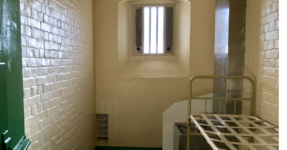Special Inquiry Hears Evidence of Prison Officer Sexually Assaulting Inmates

A New South Wales special commission of inquiry is attempting to understand the reasons behind a senior corrections officer at a Sydney women’s prison being able to commit a string of sexual offences against inmates over several years with impunity.
The commission has heard that “power imbalances” within the system made it difficult for victims to report, that the administrative and managerial structure dissuaded reporting, and that the institution fostered a culture whereby potential complainants felt they would not be believed or taken seriously, and could even face adverse consequences for reporting.
Convicted of sexual offences
Last year, former chief correctional officer at Dillwynia Correctional Centre, Wayne Astill, was sentenced to a full term of minimum of 23 years in prison with a minimum term of 15 years after a District Court jury found him guilty of 27 criminal offences including aggravated sexual assault and aggravated indecent assault (an offence now known as aggravated sexual touching).
The 66-year old had already pleaded guilty to an additional seven offences of misconduct in public office.
Some of his victims told the court they were threatened into silence, while others admitted that their relationships were inappropriate but consensual.
One woman who was found to have been sexually assaulted while she was pregnant.
Gross breach of trust
Mr Astill commenced working at Dillwynia Correctional Centre in 2009 and was promoted to the institution’s top position in 2016, before being suspended in 2019 after his years of abuse finally came to light.
During the trial, the court heard testimony he would lure women into his office by offering to help to organise criminal defence lawyers, sign off on extended visitation times, give them contraband or fix problems they were having within the centre.
It was heard that his senior position gave him considerable flexibility in terms of his work schedule and enabled him to conduct his offending without being detected or reported.
The court further heard Astill claimed to be “an ex-police officer and affiliated with a bikie gang”, with instilling fear in them of the potential consequences of reporting th abuse.
During the sentencing hearing, Judge Gina O’Rouke remarked that the “offending constituted a gross breach of trust on his behalf to the community … and also to the inmates to whom he exploited his own rank and position for his own sexual gratification.”
“It must be acknowledged his offending was spread over many years and it was committed against many victims.”
Defiant in the face of convictions
Mr Astill continues to maintain his innocence in respect of the offences for which he was convicted.
In that regard, her Honour noted he “still maintains his denial of guilt”, had shown no remorse or insight into his conduct and felt there had been “no negative impact” on those with whom he maintains he had consensual sexual relations.
This is despite a number of the women having been treated for trauma and diagnosed with psychological injuries resulting from the conduct, including post traumatic stress disorder.
Special Commission of Inquiry
Now, a special ministerial inquiry led by Hon Peter McClellan AM KC in on foot into what Corrective Services NSW (CSNW) staff, and/or prison management, knew about Mr Astill’s offending conduct, when they knew it and their responses to it.
It remains early days, but the inquiry hopes to establish how the offending could go on for so long unreported, and what changes can be made to ensure it does not occur in the future.
The inquiry has heard there is a process which enables both inmates and staff to report sexual harassment to the Professional Standards Branch.
But despite inmates having access to electronic tablets which enable them to do this, as well as to communicate with family or lawyers, these are not private. Rather, communications are conducted via a portal which is accessible to CSNSW staff so complaints cannot be made anonymously.
CSNSW has also acknowledged that compounding the problem is the fact that a considerable percentage of inmates are illiterate, meaning they cannot undertake written communication without additional help.
Although there are telephones in cells for reporting of serious incidents, instructions for use are also written down.
Vulnerable women behind bars
It is hoped the inquiry will also highlight just how vulnerable female prisoners are, their special needs, and the desperate necessity across Australia for alternatives to incarceration.
In 2022, Silke Meyer, former Deputy Director of the Gender and Family Violence Prevention Centre and Associate Professor of Criminology at Monash University, reported that approximately 98 percent of incarcerated women have histories of victimisation and trauma, and close to 85 percent have been the victims of violence.
Other figures estimate that between 40 and 73 percent of female prisoners have acquired brain injuries.
Research also demonstrates a definitive link between women’s use of violence, which is most likely to be retaliatory or pre-emptive, and a history of domestic or family violence.
Successive governments have pledged millions to domestic and family violence, but if we’re truly serious about eradicating it, then we need to seriously consider these other contributing factors, particularly because about 80 percent of the female prison population are mothers – the effect of their incarceration on their children should not be underestimated.
In recent years Dillwynia Correctional Centre has been expanded with an additional 248 beds to accommodate the growing number of female offenders in the state as part of the NSW Government’s $3.8 billion Better Prisons program.
Between 2009 and 2019, Australia’s population of female prisoners increased by 64 percent.
Perhaps it is no surprise that a disproportionate number are Indigenous women.







